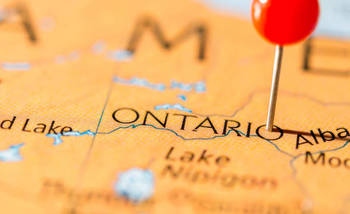Global Data Provide New Insight Into Problem Gambling

Across the globe few individuals at risk for gambling problems seek help for the issue, new research shows.
In the first study to examine global prevalence of help-seeking for problem gambling, the systematic review showed that only one in five of those with problem gambling, and one in 25 of those at moderate risk for gambling problems have sought help.
"Our findings suggest a considerable need for help among those experiencing problems related to their gambling," Rimke Bijker, PhD, School of Population Health, University of Auckland, New Zealand, and colleagues write.
The findings were July 13 in Addiction.
A Public Health Concern
An increase in online gambling and stress and isolation during the COVID-19 pandemic led to experts sounding the alarm about gambling disorders. But despite its emergence as a public health concern, systematic investigation of help-seeking for problem gambling has been lacking, the investigators note.
In their review, they included 24 studies conducted between 2010 and 2020 and involving a total of 188,234 individuals. More than 70% of the studies were conducted in Australia and New Zealand and 25% were conducted in the United States and Canada.
The overall prevalence of help-seeking for problem gambling among adults worldwide was 0.23% (95% CI, 0.16-0.33).
Prevalence estimates were significantly higher in studies assessing lifetime help-seeking (0.50%; 95% CI, 0.35-0.71) compared with studies that examined current help-seeking (0.14%; 95% CI, 0.1-0.2, P < .001).
There were no significant differences in prevalence by gambling participation, region, type of help-seeking (professional only or mixed options), or year of data collection.
Gambling severity was measured by the Problem Gambling Severity Index as low risk, as moderate risk, or as problem gambling. Help-seeking was highest in the problem gambling and the moderate risk groups compared with the low-risk group (20.63%, 3.73%, 0.27%, respectively; P < .001).
"A public health approach to gambling problems should be grounded in robust evidence on what people currently do to minimize and reduce their gambling harm and this should be inclusive of professional and non-professional support and self-help," the investigators write.
Around 40% of individuals with problem gambling recover with or without professional oversight, they add.
Historically, gambling interventions have focused on those with more severe gambling problems. To truly address the issue, gambling reduction efforts should consider individuals with problems across the full continuum of risk, including those experiencing less severe problem gambling, the researchers write.
They add that those with more severe gambling issues "are likely to have comorbidities and may require more intensive interventions, guided by professionals," such as general practitioners, psychiatrists, or psychologists.
Those with a less severe form "may prefer non-professional options and self-help strategies, which highlights the importance of information on such sources of help being promoted and easily accessible," the investigators write.
No funding source for the study was reported. The authors report no relevant financial relationships.
Credits:
Lead image: Mykyta Starychenko/Dreamstime
Medscape Medical News © 2022
Cite this: Global Data Provide New Insight Into Problem Gambling - Medscape - Jul 15, 2022.
































